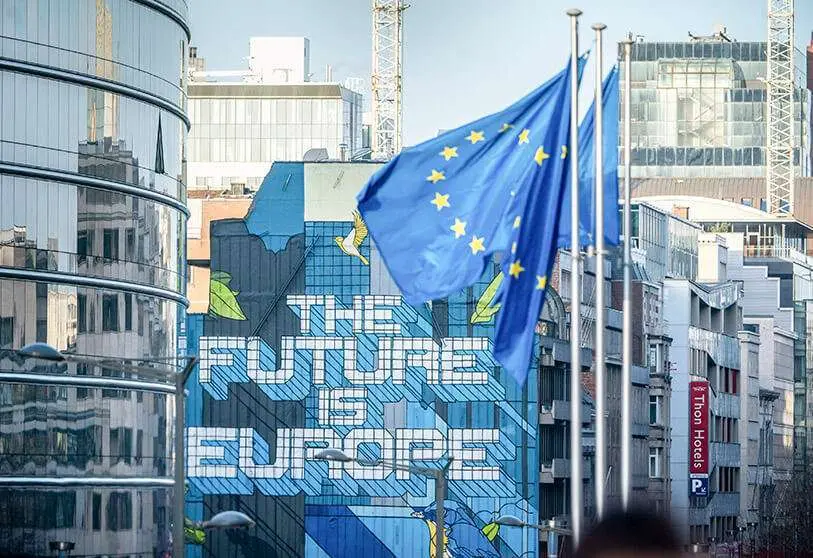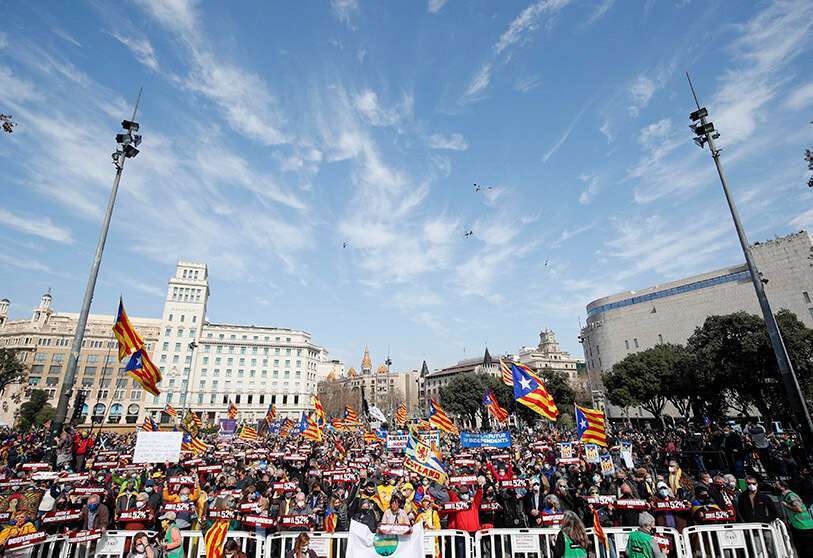Contributions to the Conference on the Future of Europe

My modest contribution to the Conference on the Future of Europe can only be related to my area of expertise, so I will not go into issues on which I may have an opinion, but on which I am not an expert.
There are many things that could be done and are not being done, especially in the political and legal fields, although I don't know if those are the areas that the Conference is addressing. But the fact is that China, with its authoritarian system and values, is increasingly involved in European society. And not only in the economic and business sphere, of course, but also in the media, in universities and knowledge institutions, in the political world, in culture and in all areas.
There is a double combination of factors that is lethal. On the one hand, China's enormous financial resources, with which it buys companies and technology, establishes stable links with universities and think tanks through joint collaboration projects financed by China, reaches agreements with media groups, invites European elites (diplomatic, academic, journalistic, business, political...) to China in order to recruit them as allies, or sets up scholarship programmes.
This is not just soft power, because all these activities and actions, perceived in Europe as civil society actions or as equivalent to those carried out by democratic countries, carry all the noxiousness that emanates from China's authoritarian system. Through this strategy, which China implements globally, the Asian giant is penetrating more or less silently into all areas of our society. In doing so, it conditions wills, promotes its authoritarian values, and aspires to (and succeeds in) modulating discourse and decision-making.
All this happens, and here is the second factor, in the midst of a huge lack of knowledge about what China is: its history, its political system, its state capitalism, the nature and modus operandi of the Chinese Communist Party. Without a better understanding of what China is, what its objectives are and the risks of falling into its arms, China will continue to exploit the fact that our lack of knowledge is the first asymmetry that works in its favour.
The consequences are political and economic, of course, from the lack of reciprocity (China takes advantage of the openness of our system to invest in sectors that in China are restricted for foreign investment!) and the theft of technology and intellectual property, to the European silence on human rights in China or the lack of transparency of its operations or of state-owned companies investing in Europe. A body to scrutinise Chinese players, or a real political alliance to join forces with a single voice against Beijing, seem to me to be a must. I am talking about armouring ourselves, starting by reducing dependence on Chinese supply chains, because what happened with COVID and medical equipment should be a warning of what is to come.
But, in addition to the political and economic, the impact of the coming power, with which - let us remember - we do not share democratic values, can filter through to the rest of society: to the media, to the university and the world of knowledge, to culture. That is why I believe it is imperative that the EU should put in place programmes to spread more and better knowledge of China, its opportunities and risks. We will not be able to avoid having a close relationship with China in the future, but it is up to us to lay the foundations so that this relationship is not asymmetrical.

In my opinion, and partly because of countries like China, one of the risks of the future in Europe and, in general, in the Western world, is disinformation. Russia has taught us how its use causes divisions, violence and chaos in our societies. And, with the new technologies, this is going to increase, and it is very worrying, because when the truth ceases to matter, then the manipulation of society and the effects of that become very worrying.
I am very clear about the diagnosis, in the sense that disinformation is a cancer and it has to be stopped. But I am less clear about the remedy. Perhaps we should make the journalistic profession a profession with high standards, like doctors or architects. Or maybe we need to legislate to force media companies and technology platforms to 'fact-check', although I am aware that this is legally problematic.
In the meantime, what can certainly be done is to raise awareness: through campaigns, through bombarding public opinion with studies and knowledge, through task forces or agencies created 'ad hoc' to combat the scourge of lies. We don't have to go far to find examples of the damage done by lies: Catalonia. And we have always thought that the State should have promoted a "counter-narrative" to neutralise lies. Putting resources in place to fight and be stronger than them could be one way.

Nothing that has not already been addressed, but I would only add that perhaps some body or agency should be created within the EU whose main objective is specifically and clearly to combat nationalism, of such a bad memory in Europe. In other words, make it an institutional objective to combat nationalism.
